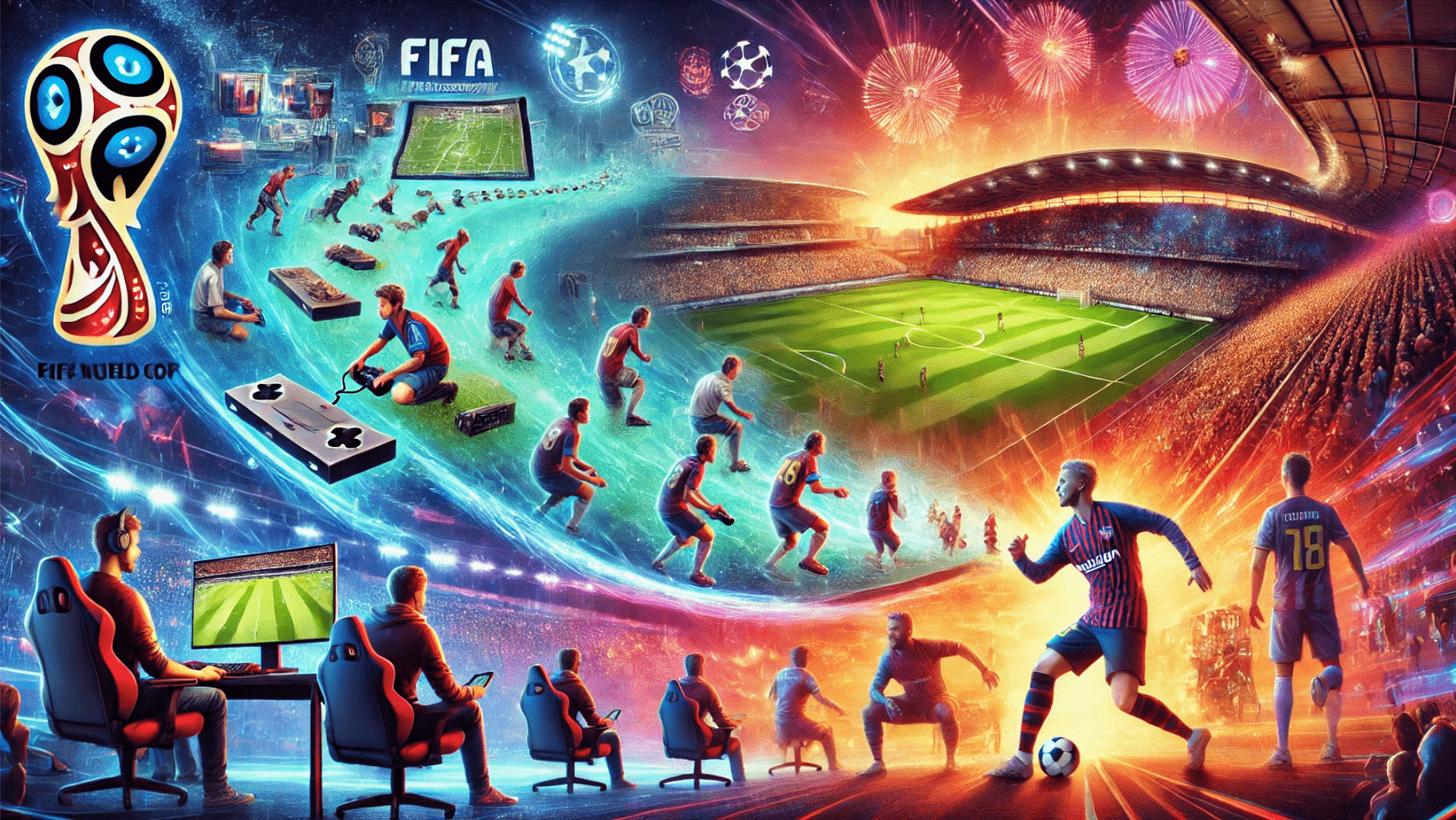The Evolution of ESports: From Niche Hobby to Global Phenomenon with FIFA
Electronic sports, or e-sports, are becoming more

Electronic sports, or e-sports, are becoming more competitive than ever. They have transcended the traditional pastime to become one of the world’s economic and cultural juggernauts.
Thousands of competitive spirits flock to professional e-sports tournaments. At the same time, millions watch on their computer or smartphone screens with live streams, cheering their favorite teams and picking up invaluable tricks to improve their game.
No other game can be as thrilling to play or watch as EA Sports FIFA. More importantly, the iconic football simulator is one of the primary movers of e-sports, recreating a beloved sport in the virtual world.
But how did it all start? Let’s find out.Nurturing the Seed of Esports
We can trace e-sports’ origins to the early 1970s proliferation of gaming consoles when kids (and families) were no longer glued to TV sets for entertainment. By 1980, around 10,000 gamers competed in the first-ever Space Invaders competition. The Donkey Kong championships followed a year later.
Mortal Kombat and Street Fighter tournaments dominated the early 1990s before FPS like GoldenEye rose to fame. Starcraft, Overwatch, Halo, and Call of Duty followed, culminating in the Starcraft 2 tournament 1998. That competition drew over 50 million viewers, with 17 million participating via the Twitch streaming platform.
As for FIFA, EA Sports introduced the game in 1993, allowing millions of fans to play the world’s most popular sport. Tournaments were initially localized and informal. They were virtual venues for friends and acquaintances to showcase their digital footballing skills. The competitions showcased local and regional talents.
Advances in internet connectivity smashed physical boundaries, empowering FIFA players to compete globally. Hence, the new millennium signaled a shift from localized FIFA tournaments to a virtual global spectacle.
The New Millennium: From Hobby to a Career
Internet connectivity demolished physical barriers to competitive gaming. More and more people are ready to showcase their skills, and digital sports are gaining mainstream recognition.
Media outlets and big-name brands started investing in player development and tournaments, allowing Counterstrike Global Offensive, League of Legends, and Dota 2 to shower tournament winners with dizzying cash prices. The increased viewership also increased brand awareness.
FIFA and EA Sports leveraged these changes and slowly entered the scene. The game’s journey mirrored prevailing industry trends, prompting the developer to make incremental improvements to FIFA’s gameplay and graphics to ensure player and spectator appeal.
The brand also introduced online matchmaking systems and multiplayer modes to facilitate competitive play. It fostered a vibrant community of electronic gamers and Esports fans eager to showcase their proficiencies.
Breaking Boundaries
The second decade of the new millennium marked the transition of Esports from localized competitions to a global phenomenon, breaking cultural and language barriers.
Millions began viewing Esports as legitimate entertainment, thanks to the impressive viewership of the Evolution Championship Series, League of Legends World Championships, and The International Dota 2 Tournament.
FIFA’s steady integration into the Esports ecosystem was more remarkable than other games. After all, the game bridged real-world football with its virtual counterpart. You could buy EA FC coins today and play your favorite national team to prepare for the 2026 FIFA World Cup.
In 2004, FIFA launched the first FIFA Interactive World Cup. Although the participation was lukewarm, it grew steadily, peaking in 2013 with over 2.5 million players across 60 countries signed up.
From Screens to Stadiums
With more people accepting Esports as legitimate, it was only a matter of time before major broadcasters started airing competitions. More importantly, big-name sports organizations and franchises began recognizing Esports’ potential.
For example, Manchester City, FC Barcelona, and Paris Saint-Germain collaborated and partnered with professional FIFAe gamers to bridge the real-world and virtual football worlds. You could pit Portugal’s rising stars against their counterparts across the world.
In 2017, FIFA launched the virtual equivalent of the World Cup. It’s like the real-world championship with an open qualifying format, allowing millions of FIFA fans to compete and earn a spot in the Magic 32.
Sixteen winners in the Group Stage progress to the Knockout Round of 16, with the victorious eight advancing to the Quarter-finals and the Final Four going to the Semis. The two last-standing players slug it out in a two-leg match, crowning the FIFAe World Cup Champion at curtain call.
Shaping the Future
Esports’ influence extends beyond pop culture. Today, many prestigious universities offer scholarships to deserving Esports athletes. These educational institutions recognize professional gamers' strategic skills and competitive spirit, which they could use in other pursuits.
FIFA’s role in the cultural paradigm shift is profound. Its ability to replicate professional football’s excitement and drama resonates with the billions of FIFA World Cup fans worldwide. Just as the quadrennial tournament draws billions of spectators, so does its virtual version – the eWorld Cup.
The continuing advances in artificial intelligence, particularly augmented and virtual reality, promise to deliver a more engaging spectator experience. These technological innovations further blur the line between real-world and virtual sports. New talent continues to emerge, pushing the boundaries of creativity, innovation, and competition.
FIFA will be at the leading edge of this evolution, with each update and game installment improving gameplay mechanics and realism beyond imagination. FIFA esports athletes are no longer mere outliers. They are pioneers in a booming field.
Final Thoughts
Esports started as a niche hobby played by local gamers in communities. Times change. The backyard competition is no more. Instead, Esports is a global phenomenon, and there’s no better example than FIFA. Moreover, FIFA underscores how community, competition, and technology can transform friendly matches into a multi-billion-dollar industry.







